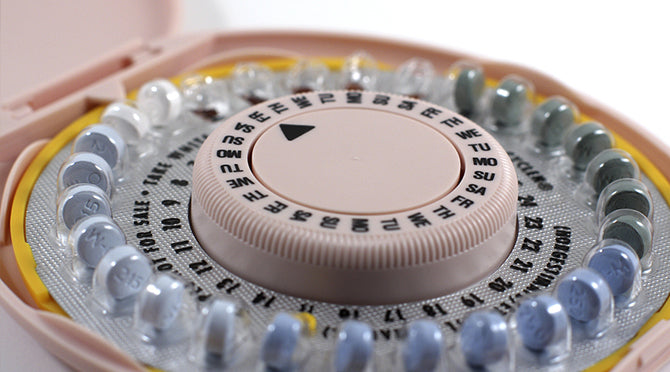
Combien de temps après la contraception peut-on tomber enceinte ?
Partagez
Combien de temps après la contraception peut-on tomber enceinte ?
Vous vous demandez combien de temps après la contraception vous pouvez tomber enceinte ?
Il existe d'innombrables raisons pour lesquelles vous avez du mal à tomber enceinte. Si votre objectif est de tomber enceinte naturellement, il est compréhensible que vous cherchiez toutes les raisons possibles pour lesquelles cela n'arrive pas, y compris l'utilisation de contraceptifs à court ou à long terme.
La bonne nouvelle : l'utilisation de contraceptifs n'a que peu ou pas d'impact sur la fertilité après l'arrêt, même si vous l'avez utilisé pendant de nombreuses années avant d'essayer de concevoir. Ci-dessous, nous explorons plus en détail le lien entre la contraception et la grossesse, et partageons quelques conseils utiles pour augmenter vos chances de tomber enceinte chaque mois.
Comment le contrôle des naissances affecte-t-il la fertilité ?
Il existe de nombreux types de contraception, mais tous ont une fonction essentielle : empêcher la rencontre entre un ovule et un spermatozoïde et la création d'un embryon. Ils y parviennent de différentes manières :
- La contraception non hormonale fonctionne en créant une barrière dans le corps afin que les spermatozoïdes viables ne puissent pas atteindre l'ovule.
- La contraception hormonale agit soit en empêchant l'ovulation et en garantissant ainsi qu'aucun ovule ne soit présent pour être fécondé, soit en amincissant la muqueuse utérine afin qu'un ovule fécondé ne puisse pas s'implanter.
Quelle que soit la méthode, tous les types de contraception ont un impact sur votre fertilité pendant que vous les utilisez. Mais par la suite, votre fertilité devrait rapidement revenir à la normale. En fait, les recherches ne montrent aucun effet négatif sur la fertilité lié à l'utilisation de contraceptifs , ni aucun retard significatif dans la capacité d'une femme à concevoir une fois qu'elle arrête de prendre des contraceptifs.
Peut-on tomber enceinte juste après avoir arrêté la pilule ?
Oui!
Il est souvent admis à tort que la contraception doit être complètement éliminée de votre organisme avant de pouvoir tomber enceinte. Au contraire, vous pourriez ovuler au cours du même cycle où vous arrêtez la pilule ou d'autres méthodes de contraception telles que les stérilets, les implants ou les injectables, ce qui signifie que vous pourriez concevoir immédiatement.
Bien entendu, toutes les femmes sont différentes et certaines connaissent des règles irrégulières ou une anovulation dans les premiers mois suivant l’arrêt de la contraception. Cela est particulièrement vrai pour les femmes qui ont connu ces problèmes avant de prendre un contraceptif.
Alors oui, vous pouvez tomber enceinte immédiatement après avoir arrêté la contraception, mais cela ne veut pas dire que vous le ferez. Si vous vous inquiétez de vos règles après avoir arrêté la pilule ou une autre méthode de contraception, ou si vous n'avez pas réussi à tomber enceinte après un an (35 ans et moins) ou six mois (36 ans et plus), parlez-en à votre médecin pour savoir ce qu'il vous recommande.
Conseils pour tomber enceinte après avoir arrêté la contraception
Arrêter la contraception est une étape importante pour tomber enceinte. Mais le travail ne s'arrête pas là. Voici trois choses que vous devriez faire si vous souhaitez tomber enceinte après avoir utilisé la contraception, qui valent toutes la peine d'être essayées si vous vous efforcez de concevoir naturellement.
Mémorisez votre fenêtre d'ovulation
En règle générale, les deux jours précédant et suivant l'ovulation sont idéaux pour la conception. Cela étant dit, chaque femme a un cycle d'ovulation unique et certaines femmes ovuleront plus tôt ou plus tard dans leur cycle ou pendant des périodes plus ou moins longues. Utilisez des tests de prédiction de l'ovulation ou d'autres méthodes telles que le suivi de la température corporelle basale ou le suivi de la glaire cervicale pour déterminer quand vous ovulez et pendant combien de temps, puis utilisez ces informations pour planifier vos rapports sexuels de manière appropriée.
Prendre des suppléments de fertilité
L'alimentation ne peut pas tout faire. Renseignez-vous sur les compléments alimentaires pour stimuler la fertilité et assurez-vous de combler les lacunes nutritionnelles que votre alimentation peut laisser derrière elle. Certains mélanges de fertilisants peuvent faire une différence notable dans vos chances, en particulier lorsqu'il s'agit de vous aider à produire des ovules sains et de créer un environnement propice à l'implantation d'un ovule fécondé. Assurez-vous simplement de vous en tenir à des marques réputées et de lire attentivement les étiquettes pour vous assurer que vous obtenez les bonnes vitamines stimulant la fertilité aux bonnes doses.
Augmenter l'activité sexuelle
Vous ne pouvez pas tomber enceinte si vous n'avez pas de rapports sexuels. Essayez de faire l'acte dans les deux jours précédant l'ovulation et le jour même de l'ovulation, et essayez de maintenir une relation forte pendant le reste du mois également. Le fait d'essayer de concevoir gâche-t-il votre vie sexuelle ? Les experts en sexualité vous conseillent d'introduire de nouveaux éléments excitants dans la chambre à coucher pour que les choses restent intéressantes. Cela vous aidera, vous et votre partenaire, à vous impliquer davantage dans les rapports sexuels eux-mêmes au lieu de vous concentrer sur la monotonie d'essayer d'avoir un bébé encore et encore.
Qu'ils aient déjà utilisé ou non une méthode de contraception, la plupart des couples en bonne santé réussiront à concevoir en un an. Consultez notre boutique en ligne pour obtenir un soutien supplémentaire en matière de fertilité et n'oubliez pas de consulter votre médecin si vous avez des inquiétudes ou des questions concernant la grossesse.
